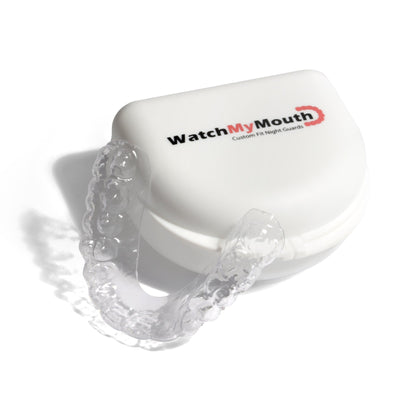Introduction
Night guards have become a popular solution for those grappling with the effects of teeth grinding and clenching. But have you ever wondered about the science behind these dental devices? In this article, we’ll unravel the mechanisms at play, explaining how night guards effectively protect your teeth from the damaging consequences of bruxism.
The Mechanics of Teeth Grinding
Understanding Bruxism Forces
Teeth grinding exerts considerable force on your dental surfaces, wearing down enamel and potentially leading to various oral health issues. The repetitive nature of grinding can cause not only dental damage but also strain on the jaw muscles, contributing to discomfort and pain.
Creating a Protective Barrier
Night guards work by creating a physical barrier between your upper and lower teeth. This barrier absorbs the forces generated during grinding, preventing direct contact between the tooth surfaces. This simple yet effective mechanism is instrumental in preserving tooth enamel and minimizing the impact of bruxism.
Custom-Fitted Night Guards: Tailoring Protection
The Importance of a Perfect Fit
Custom-fitted night guards take protection to the next level by ensuring a snug and tailored fit for each individual. Dentists create these guards based on impressions of your teeth, providing optimal comfort and coverage. A well-fitted night guard not only enhances protection but also promotes better sleep quality.
Materials Matter
Night guards are typically made from materials like acrylic or soft plastics. These materials are chosen for their durability, flexibility, and ability to absorb impact. Understanding the properties of these materials sheds light on why custom-fitted guards are preferred—they allow for precision in selecting the most suitable material for each patient.
Addressing Common Concerns
Breathing and Comfort
One common concern about night guards is their impact on breathing and overall comfort during sleep. However, with advancements in design and materials, modern night guards strike a balance between providing protection and ensuring breathability. Regular adjustments and consultations with your dentist can address any comfort issues.
Maintenance and Longevity
Proper maintenance is key to ensuring the longevity of your night guard. Regular cleaning and storage in a well-ventilated container help prevent bacterial growth and deterioration. night guard for teeth grinding ensures it remains effective and comfortable over time.
Conclusion
Night guards are not just a dental accessory; they are a scientifically-backed solution to the challenges posed by teeth grinding. By creating a protective barrier and customizing the fit, these devices play a crucial role in preserving your oral health. If you’re considering a night guard or already use one, understanding the science behind these dental aids enhances your appreciation for their role in safeguarding your teeth. Embrace the protective embrace of night guards and unlock the science behind a healthier, grind-free smile.












Comments